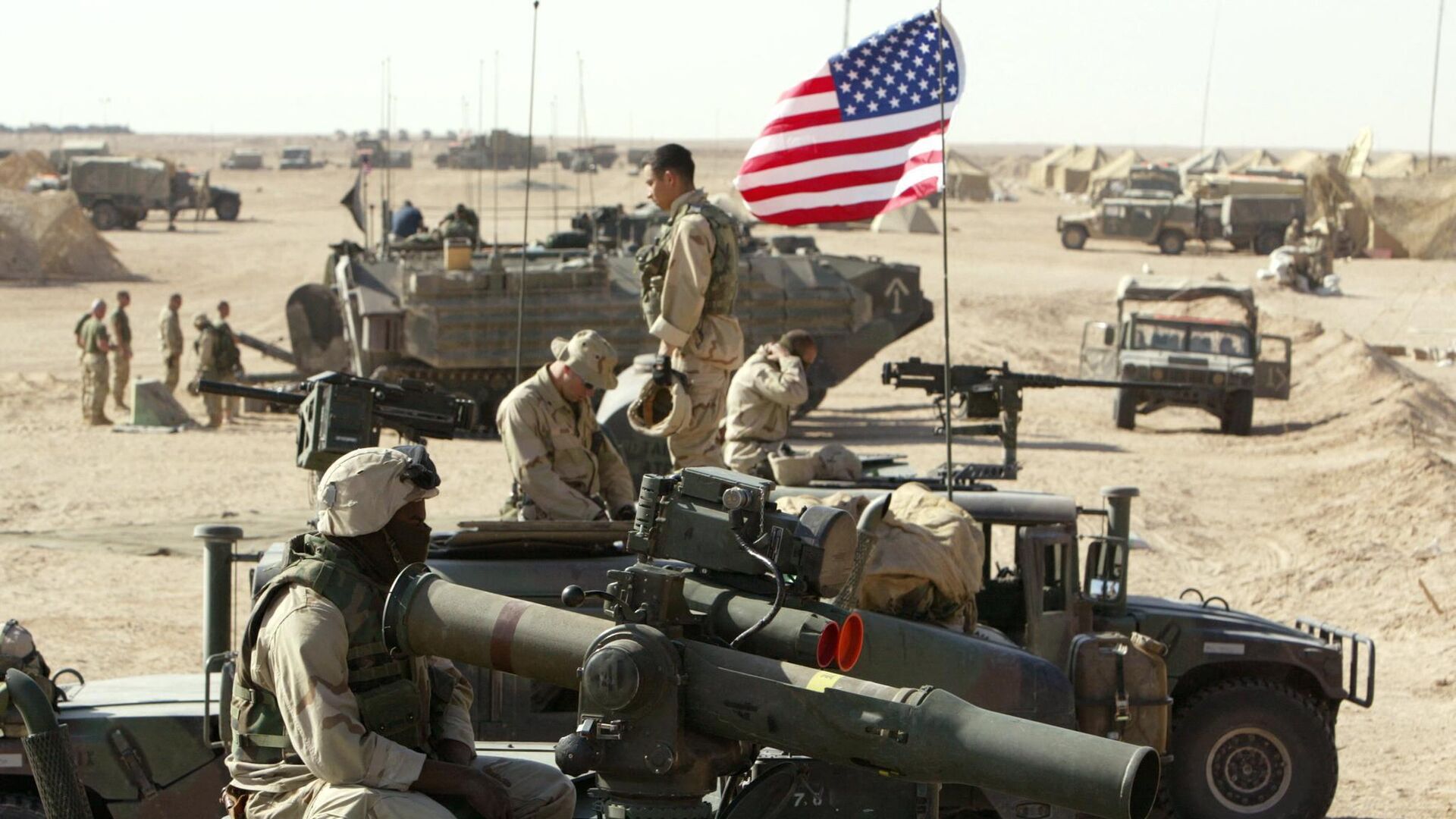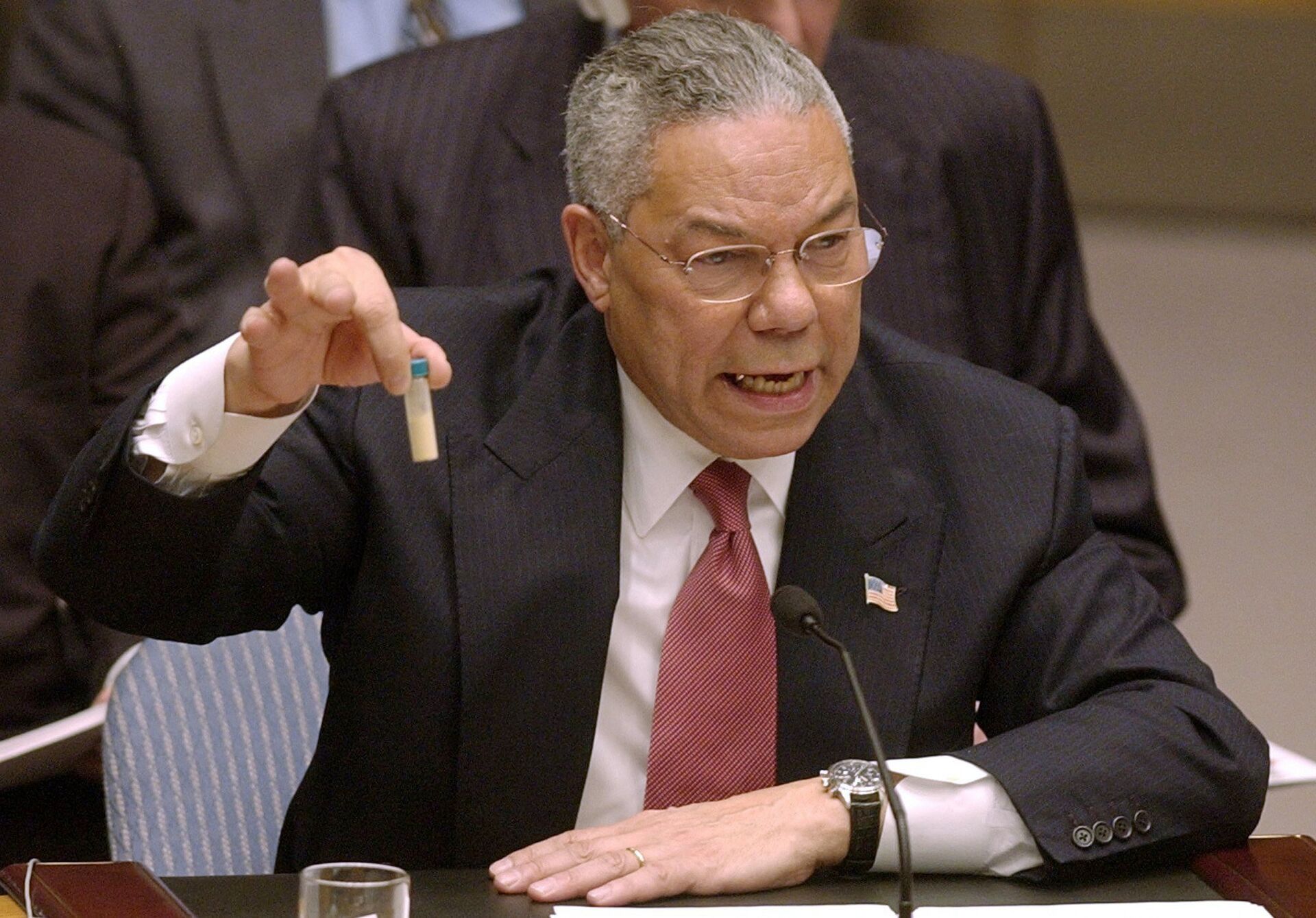Ex-Pakistani Foreign Minister Remembers Bush Admin Divided on 2003 Iraq Invasion

© AFP 2023 JACK GUEZ
Subscribe
MOSCOW (Sputnik) - The administration of former US President George W. Bush was not of one mind when it came to invading Iraq in 2003, with several powerful officials, often described as "neoconservatives," advocating promoting democracy in Muslim countries, Khurshid Mahmud Kasuri, a former Pakistani foreign minister, told Sputnik.
"They said that the Bush Administration was divided. The so-called 'Neocons,' they were these 3-4 people that were very clear in that they believed in spreading democracy in the Muslim world or whatever the reason," Kasuri, who represented Islamabad at that UNSC meeting, said.
He added that he believed "these 3-4 people... were very powerful," and he was also told that "Vice President [Dick] Cheney was the most powerful man in as much as he had a very powerful influence over President Bush."
The United States applied ample pressure to move forward with a UN resolution on Iraq in 2003 despite being determined to take action with or without the support of the United Nations Security Council, Kasuri told Sputnik.
"There was a lot of pressure, and the United States wanted to table a resolution at the United Nations, and for different reasons, all of us, and as far as Pakistan was concerned, we felt that we had to wait for the [results of the] UNMOBIC, the UN fact-finding mission on the ground, and the IAEA investigation, and there had also been an earlier Security Council resolution providing a broad framework," Kasuri, who represented Islamabad at that UNSC meeting, said.
According to the former foreign minister, the US had a different view on the matter and "tried everything and applied a lot of pressure." Kasuri also thinks that the US side concluded at the time that apart from facing two permanent members of the UNSC, Russia and France, they would be unable to get nine votes, including from the supposed allies Mexico and Pakistan.

The image seen round the world of Secretary of State Colin Powell and his mock vial of anthrax,which he held up during a presentation before the UN on Iraq's alleged weapons of mass destruction program, February 5, 2003.
© AP Photo / Elise Amendola
"The United States had already decided that whether it got the support of the United Nations Security Council or not, they were going to go in, and I think there was a coalition of 13 to 14 nations, the only important ones that I recollect were probably the United Kingdom and maybe Australia. The others were small countries which were more of a symbolic support for US actions," Kasuri stated.
The former minister also highlighted the US impatience on the issue of Iraq as well as in how much agreement the top officials of the George W. Bush administration were.
"I remember Collin Powell telling me that the United States could not just go on waiting forever and ever. I don’t know what the hurry was, it may have been political, or perhaps internal US politics, but there was a strong unanimity, albeit with some difference in emphasis between Secretary of State Collin Powell and Secretary of Defense Donald Rumsfeld, and Vice-President [Dick] Cheney was also very strong on that, he and Rumsfeld, as I recall, had similar views," Kasuri added.
However, at the time the United Nations Security Council had to take a stand against the United States on the issue of Iraq in 2003 in order to avoid creating a precedence for preemptive attacks that could create global instability, the ex-foreign minister said.
"All that I can say is the fact that the United Nations Security Council did not support them, we felt that if we did not really take a strong stand, there would be another danger: it would allow the right to preemptive strikes to countries in the future, which would really cause great international instability," Kasuri, who represented Islamabad at that UNSC meeting, said.
February 5 marks the 20th anniversary of the infamous meeting where then-US Secretary of State Colin Powell told the UNSC that he had first-hand information about the technologies for the production of biological weapons allegedly available to then-Iraqi leader Saddam Hussein. While Powell's presentation failed to persuade the council to pass a resolution to back the US invasion of Iraq, in ended up undermining Washington's credibility as no weapons of mass destruction were later found in the Middle Easter country.
In March 2003, the US-led coalition invaded Iraq and overthrew Hussein, which ushered in more than a decade of instability in the Middle Eastern country and across the region. Among the chief supporters of that military campaign among the US establishment were the so-called neoconservative intellectuals and officials who favored using US power to promote what they said was security and development of democracy in other countries.
